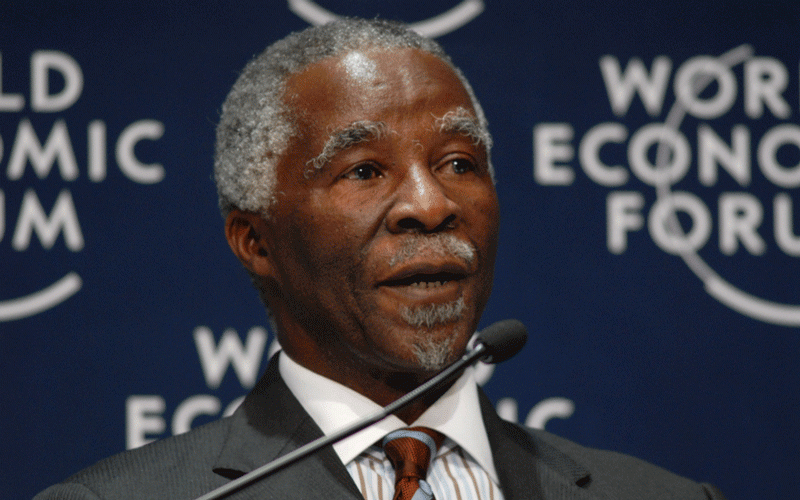Policy in South Africa roots itself in a history of struggle — as a society that suffered at the hands of a powerful, restrictive apartheid regime, South Africa had to reorient itself in the post-apartheid world beginning in 1994. A liberal constitution, framed upon rights to human dignity and freedom of expression that were previously ignored, promised an era of liberation and restoration. In this new context, policymakers and politicians find themselves grappling with their roles and responsibilities in the ethical fabric of South African democratic society. When it comes to public health policy, South Africa is a case study in itself on how policy, or lack thereof, can endanger the lives of thousands — and intensify the issue of mental illness.
Misguided HIV/AIDS policies — analyzed by the Harvard School of Public Health — riddled former President Thabo Mbeki’s era of governance, “causing a massive, unconscionable loss of human life” and sparking a conversation about public health malpractice. State-sponsored HIV/AIDS denial in South Africa during the early 2000s set a poor precedent for public health policy construction and implementation. Mbeki, Nelson Mandela’s successor, refused to offer AIDS treatment to the very people he was representing, insisting that HIV does not cause AIDS, since “HIV is a virus and AIDS is a syndrome.” In dismissing conclusive scientific data proving otherwise, Mbeki set in motion a form of governance that wholeheartedly neglected policy that would have introduced AIDS medicines in the public sector. Studies from the University of Cape Town and Harvard University estimate that this negligence “resulted in over 300,000 avoidable deaths in South Africa.”
This ignorance has ultimately laid an unstable foundation for public health policy — HIV/AIDS denial has significantly impacted policies surrounding mental illness and mental health care. While independent researchers comment that this “HIV/AIDS hypothesis was a mathematical impossibility,” they are neglecting to look outside the bounds of science, and acknowledge the fact that Mbeki’s refusal was a gross infringement on democratic duty in a newly post-apartheid state.
The failure to address the HIV/AIDS epidemic with policy has snowballed into inadequate mental health policy. The prevalence of mental health disorders among this population is a bleak testament to South Africa’s policy failure, and perpetuates a negative stigma associated with mental illness and outdated forms of care. Considering that “HIV/AIDS is associated with a significantly increased burden of neuropsychiatric disease and disability including depression, anxiety, psychosis and dementia,” it can be deduced that a lack of substantial policy construction and implementation addressing such a pandemic undermines any efforts to integrate the conversation of mental health — one reifies the other. According to the National Institute of Health, “A substantial portion of HIV test-seekers may have an existing mental disorder that is likely to go undetected and therefore untreated,” as the absence of treatment has become a norm rather than an exception in the face of a neglected health and development policy agenda.
Last revised in 1997, South Africa’s mental health policy is neither an official nor national plan — yet, 47 million people within the country’s borders live with “multiple societal-level socioeconomic risk factors for mental illness and disability.” This mental health gap, largely a consequence of poor physical health policy and agenda setting, is an issue of human rights. When our ignorance gives way to stigmatized behavior, individuals living with mental illness are “frequently subjected to human rights abuses.” While the case can be made that there are more pressing issues plaguing South Africa, including poverty, child mortality and disease, these challenges are ultimately compounded by and inseparable from mental health problems — “neuropsychiatric disorders — which include mental health and nervous system disorders — are the third largest contributor to the burden of disease after HIV/AIDS and other infectious diseases.” Mental health policy and management can no longer take the backseat.
A redirected focus on mental health would initiate an attempt to redress the infringement on human rights and ultimately escape the dark shadow that the apartheid era still casts over the newly democratic state. Dan Stein, professor and chair of the Department of Psychiatry and Mental Health at the University of Cape Town, South Africa, has spearheaded efforts to move the conversation forward and offer hope for millions of people suffering from mental illness. In 2013, Stein facilitated the adoption process of the Mental Health Policy Framework (MHPF) for South Africa, which integrates mental health services within the South African context in order to best maintain an emphasis on human rights and the needs of vulnerable populations.
Yet again, we see history repeating itself. South Africa has developed a habit of marginalizing its most vulnerable, and continues to do so in a post-apartheid context. In keeping with the spirit of democracy, policymakers must take care to apply the lessons from the Mbeki presidency to the current state of mental health affairs in South Africa.
When representatives write and implement policy that de-stigmatizes mental health and seeks to dignify a group that has been repeatedly othered, South Africa will be one step closer to substantiating its title as a post-apartheid state.
Lucy Siegel is an Opinion Columnist for The Cavalier Daily and was the 128th Opinion Editor. She can be reached at l.siegel@cavalierdaily.com.







